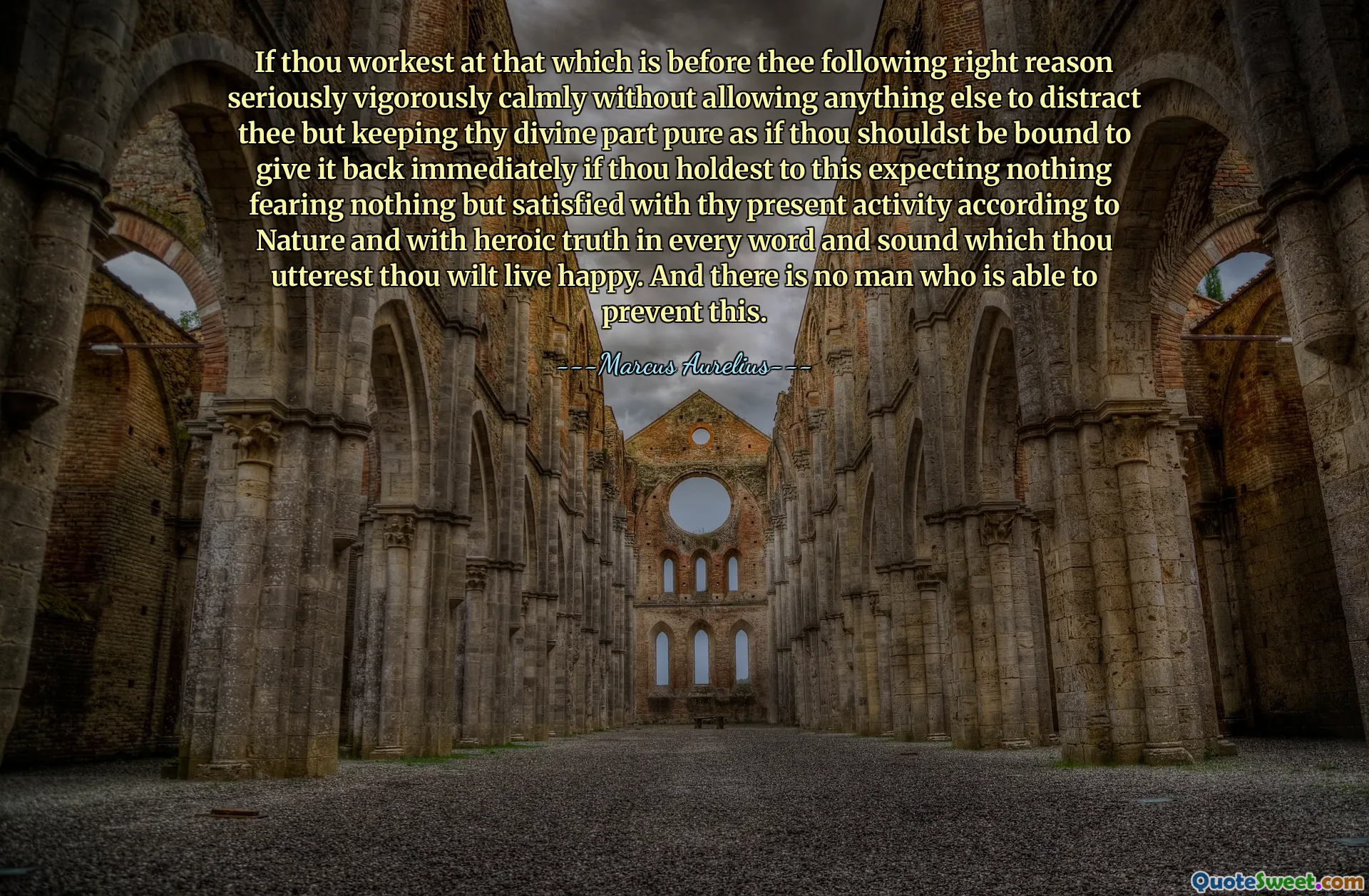
If thou workest at that which is before thee following right reason seriously vigorously calmly without allowing anything else to distract thee but keeping thy divine part pure as if thou shouldst be bound to give it back immediately if thou holdest to this expecting nothing fearing nothing but satisfied with thy present activity according to Nature and with heroic truth in every word and sound which thou utterest thou wilt live happy. And there is no man who is able to prevent this.
This quote by Marcus Aurelius offers a profound perspective on how to live a fulfilling and virtuous life. At its core, it emphasizes the importance of focusing one's efforts on the task at hand, approaching it with reason, intensity, and tranquility. By advocating for working diligently without distraction, Aurelius underscores the value of mindfulness and presence—being fully engaged in the present moment. The idea of keeping one's divine part pure suggests maintaining inner integrity and moral clarity, almost as if trading it back immediately to fulfill a sense of duty or harmony with nature. This mindset calls for an unwavering commitment to virtue, not for external validation, but from within, expecting nothing in return. The mention of being satisfied with the current activity aligned with nature encourages acceptance and contentment with one's present circumstances, a core Stoic principle that promotes peace of mind amidst life's inevitable fluctuations. Furthermore, the pursuit of 'heroic truth' in every word and sound hints at living with honesty, authenticity, and integrity in speech and action. The overarching message is that by adhering to these principles, happiness becomes an achievable state, unconquered by external circumstances or others' actions. Aurelius reminds us that this inner discipline and focus are within our power, and no external force can truly prevent us from living a life aligned with virtue and reason.











